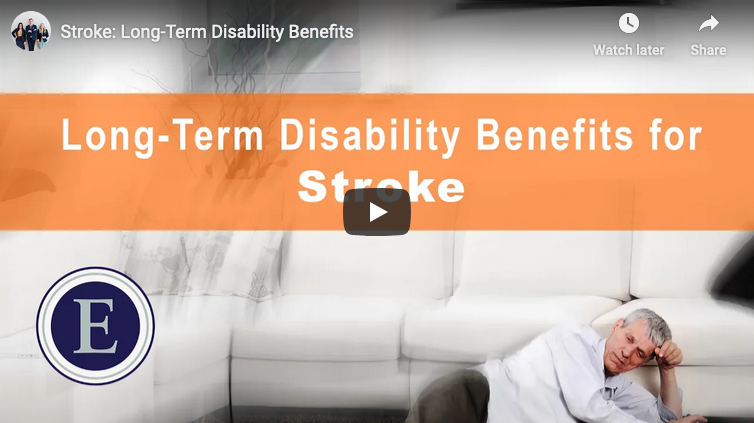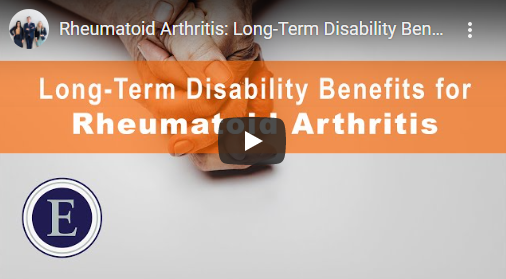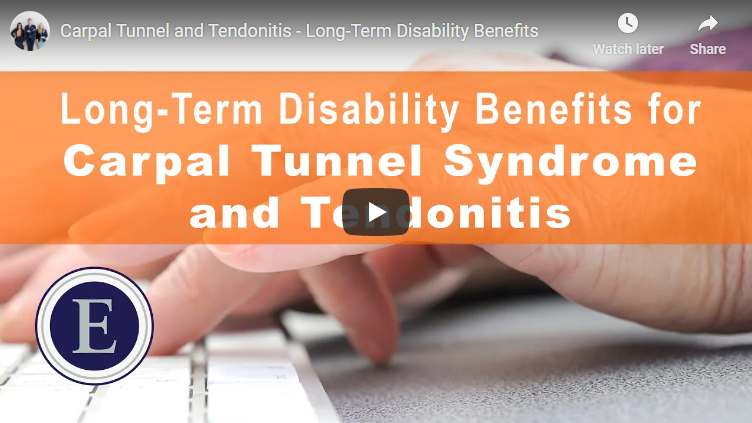Do I Qualify for Long-Term Disability Benefits if I Have Depression?
Can I Get Long-Term Disability Benefits for Depression?
One of the most common questions we get is “Do I qualify for long-term disability benefits if I have Depression?”
Depression is recognized as a mood disorder that causes persistent feelings of sadness and disinterest in formerly enjoyed activities. It can have a significant affect on employment and daily life.
Therefore, Depression can qualify for long-term disability benefits – provided it is not excluded by your insurance policy wording.
LTD Denied? Which Category Do You Fit In?
Category 1: The insurance company denied your initial claim for disability benefits for Depression.
Category 2: The insurance company denied your appeal.
Category 3: The insurance company discontinued or terminated your benefits.
What Can We Do For You?
We’ll work with you and your physician to help challenge the insurance company’s denial or discontinuance of your long-term disability benefits.
Where necessary, we will engage other trusted professionals to support your case including specialists, functional capacity evaluators, and vocational evaluators to help credibly explain why your disability symptoms are preventing you from doing your “own occupation” or “any occupation”.
Our Help Can Make All The Difference. How?
- Over 25 years’ combined experience getting our clients the benefits they deserve.
- Expertise in both disability and employment law (your employment status is directly linked with your disability)
- We offer a free case assessment
- We offer flexible rates, including contingency fees (i.e., only pay if you win)
- Service across all of Ontario
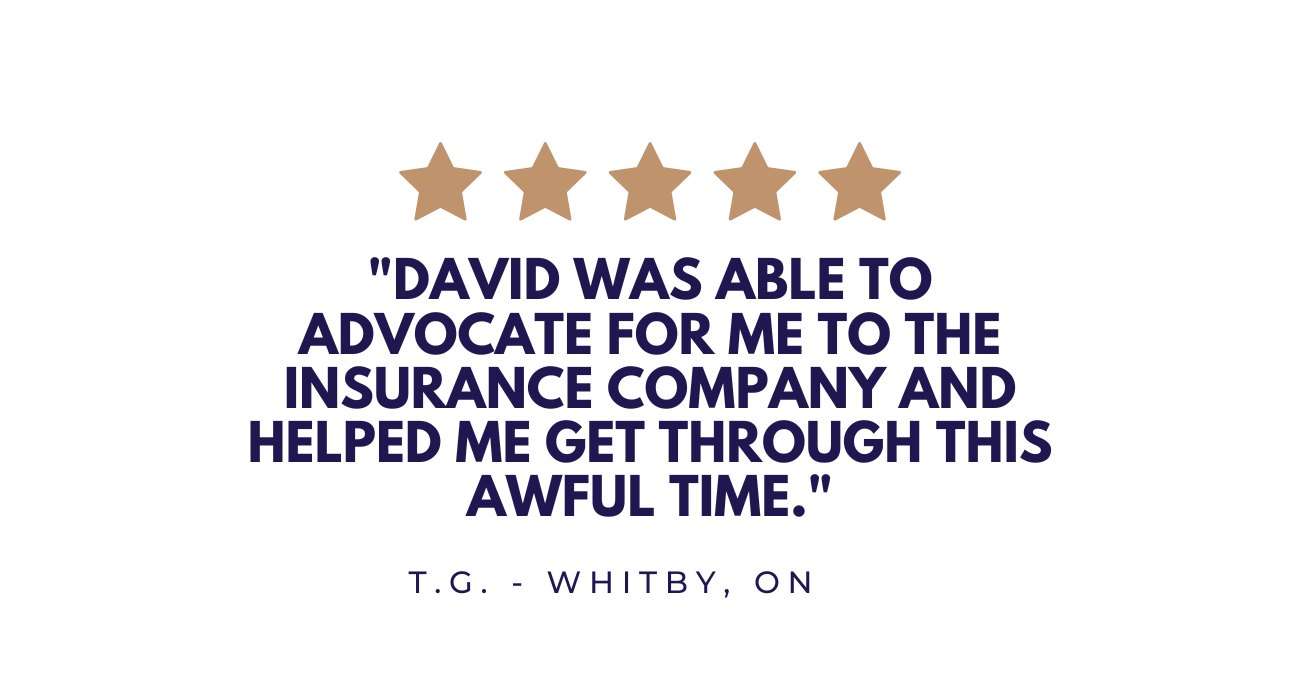

Depression: Overview
Depression is a mood disorder that negatively impacts one’s thoughts, feelings, and actions. While some people experience only 1 depressive episode in their lifetime, others experience numerous episodes, with each typically ranging from 6 – 18 months [3]. A diagnosis of Depression can be made when symptoms of Depression are felt everyday for a minimum of 2 weeks.
Depression can be the result of a number of factors including, genetics, hormones, brain chemistry or biological differences.
There is considered to be 7 different forms of Depression:
- Major Depressive Disorder (MDD): Often referred to as Clinical Depression, a diagnosis of MDD can be made if the patient has had symptoms for a longer period than 2 weeks. Symptoms include feelings of sadness, fatigue, loss of interest in normal activities and/or thoughts or attempts of self-harm or suicide.
- Persistent Depressive Disorder (PDD): Also referred to as Dysthymia, PDD is a chronic mood disorder that presents itself the majority of days for a period of at least 2 years. Brief periods of relief can occur within this time period. Symptoms of PDD are less severe than Major Depressive Disorder, however, they are long-lasting.
- Postpartum Depression (PPD): PPD can occur during or following pregnancy and can last up to 1 year. Symptoms include, but are not limited to, severe mood swings, difficulty bonding with your child, feelings of worthlessness, postpartum psychosis and thoughts of hurting yourself or your baby.
- Premenstrual Dysphoric Disorder (PMDD): PMDD consists of similar symptoms to Premenstrual Syndrome, however the symptoms related to your mood are intensified. Symptoms can include, feelings of sadness or anxiety, extreme fatigue and/or food cravings or binging.
- Seasonal Affective Disorder (SAD): Those diagnosed with SAD experience symptoms of Major Depressive Disorder exclusively in the winter months. This is considered to be the result of a disturbance in one’s normal circadian rhythm. SAD often goes unreported or undiagnosed.
- Atypical Depression: Atypical Depression shares similar symptoms to MDD, however, does not fall under the typical outlines of MDD (those with Atypical Depression experience feelings of relief in response to a positive event).
- Bipolar Disorder: Bipolar disorder is a mood disorder that causes a person to experience periods of extreme lows (depression) and highs (mania or hypomania) [2]
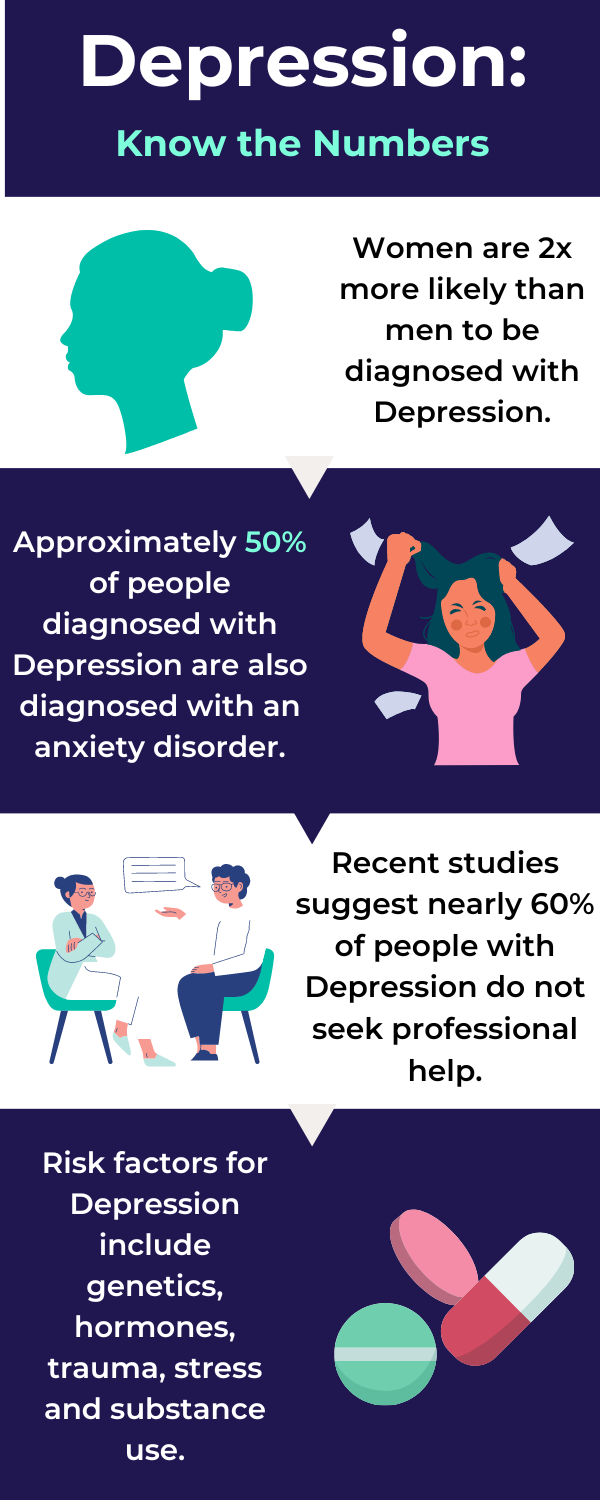
Most Common Symptoms of Depression
Symptoms of Depression include but are not limited to:
- Persistent feelings of sadness or hopelessness
- Irritability
- Anxiety or restlessness
- Loss of interest in previously enjoyed activities
- Abnormal sleep patterns
- Weight loss or weight gain
- Decreased energy
- Difficulty concentrating
- Unexplained physical pain
- Thoughts or attempts of self-harm or suicide
Criteria for a Diagnosis of Depression
Depression can be difficult to diagnose due to its various symptoms. A diagnosis of Depression can be made if the you continuously experience 5 or more symptoms in a period of 2 weeks or more. One of these symptoms must be either depressed mood or loss of interest.
Your Doctor should ask you about your medical and family history as this disorder can be inherited. Your Doctor will complete a physical examination to rule out any physical explanations for your symptoms. The most effective way to obtain the information needed to make a diagnosis is through verbal discussion between you and your physician. Further blood tests will likely be suggested for a more conclusive diagnosis.
A diagnosis of Depression is based, to a large extent, on self-reported symptoms, and long-term disability insurers often deny these claims.
Treatment for Depression
Depression can be a life-long disorder. In these cases, medication and psychotherapy are recommended to manage symptoms and/or to prevent relapse within patients who have achieved remission.
Medication
The most common form of medication used to treat Depression are Selective serotonin reuptake inhibitors (SSRIs). These include Fluoxetine, Citalopram and Sertraline. (7)SSRIs prevent the reabsorption of serotonin, allowing more to be available to the brain’s nerve cells.
Serotonin and norepinephrine reuptake inhibitors (SNRIs) are also prescribed to people with Depression. (8)SNRIs affect neurotransmitters with the job of communicating messages and feelings to the brain.
Psychotherapy
Psychotherapy is usually recommended to those with Depression on top of medication. The two most effective forms of “talk therapy” for people with Depression are:
Cognitive-behavioural therapy (CBT)- A goal-oriented approach to developing skills and strategies for creating and maintaining healthy habits.
Behavioural Activation (BA)- Behavioural activation tackles a patient’s long-term goals and develops coping strategies to reach them.
Dialectical Behaviour Therapy (DBT)- Similar to CBT, Dialectical Behaviour Therapy focuses on the power of positive inner dialogue and thoughts.
Problem-Solving Therapy (PST)- PST focuses on addressing and managing life stressors. This form of therapy deals with processing difficult information and situations.
Interpersonal therapy- Interpersonal therapy works to improve and resolve interpersonal relationships that may be affected by one’s Depression.
Alternative Therapy
Electroconvulsive Therapy (ECT)- ECT is recommended for patients who don’t respond well to antidepressants, have a health condition that prevents them from taking medication, or who are at risk of self-harm or depression. Electrical currents are passed through the brain to effect neurotransmitters.

Depression & Your Employment
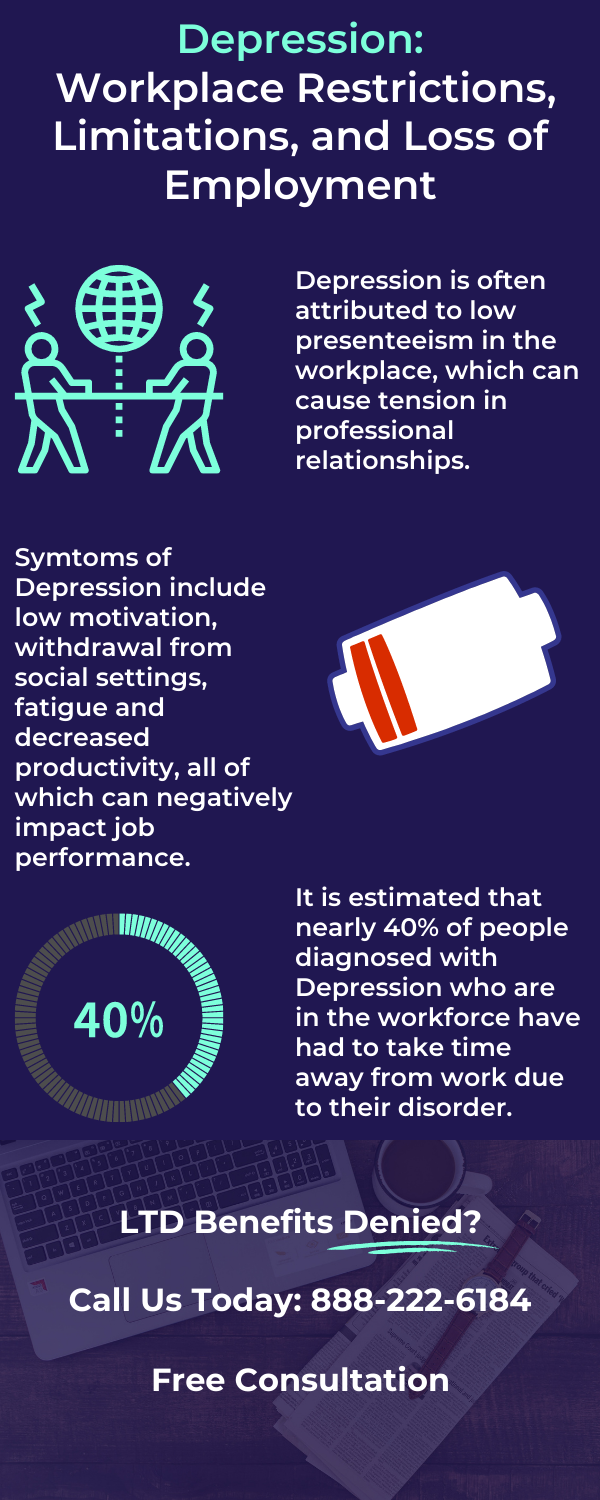
Workplace Restrictions Caused by Depression
When considering your employment and Depression diagnosis, consider how stable your condition is, how safe you are to do your job and what the demands are physically and mentally.
Many individuals suffering from Depression may experience low motivation, fatigue, and decreased productivity.
Depression and Workplace Discrimination
It is unlawful to discriminate against someone in the area of employment based on their physical disability: Ontario’s Human Rights Code and the Canadian Human Rights Act.
If you are suffering from Depression, you might face discrimination in a variety of ways:
- You experience employment termination because you have Depression.
- You are denied accommodation because of your Depression.
- After returning from a disability leave, your employer places you in a lower, part-time position at a lower rate of pay.
- Someone makes unwelcome remarks or jokes about your disability.
- Someone offends or humiliates you physically or verbally threatens or intimidates you because of your disability.
- Retaliating against you for filing a human rights complaint.
Ertl Lawyers are experts in Employment and Disability Law. If you have been discriminated against, our disability and employment lawyers in Toronto can help, including:
- Having your employer comply with their duty to accommodate you.
- Having your employer stop all forms of discriminatory conduct.
- Representing you in wrongful dismissal in Ontario, constructive dismissal, and human rights matters.
- Ensuring that your employer complies with its statutory obligations, including its obligations under the Employment Standards Act.
- Negotiation severance packages (including continuation of benefits).

Depression & Insurance Companies
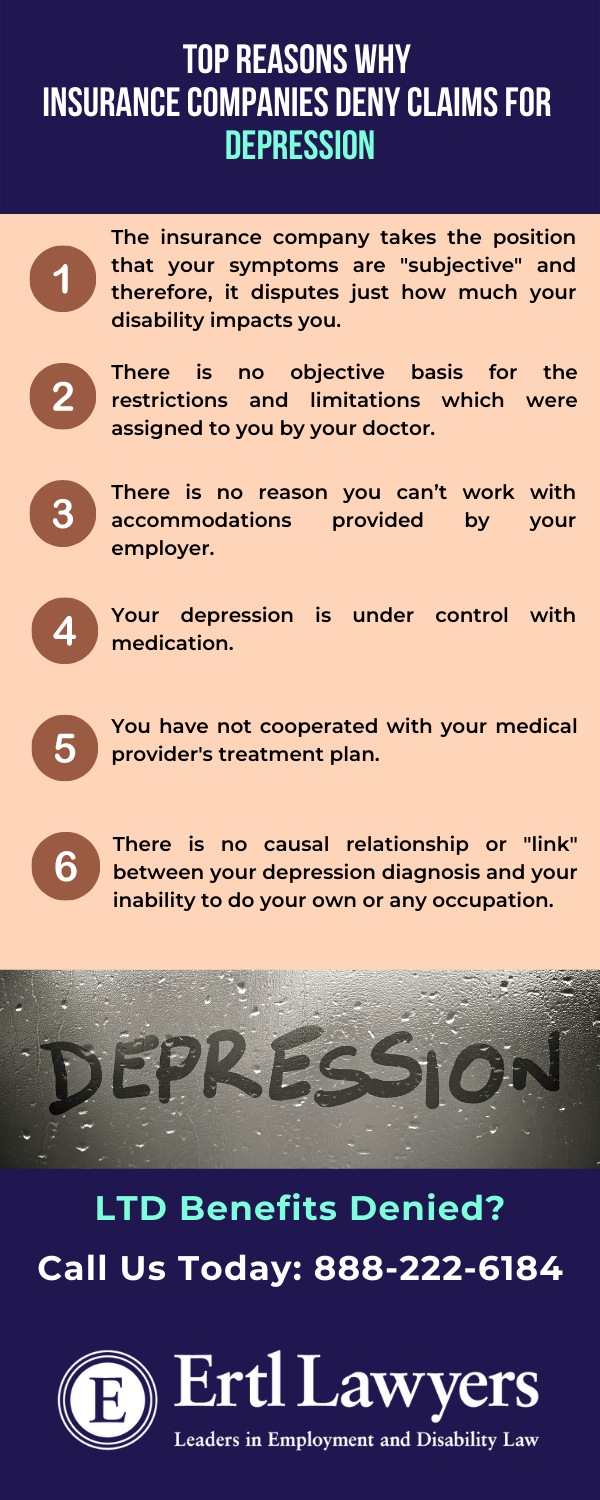
Apply for Long-Term Disability Benefits for Depression?
Review Your Policy Carefully
Your entitlement to disability benefits for Depression depends on the specific wording of your disability policy.
Therefore, you will need to review your policy and see how it defines things like “totally disabled” and “occupation” – and whether any exclusions apply (particularly for pre-existing conditions).
Gather Medical Evidence
To be entitled to disability benefits for Depression every insurer requires you to provide medical evidence documenting how your illness or injury causes restrictions or lack of ability, such that you are prevented from performing the essential duties of your occupation.
Therefore, you will need a copy of your medical records to see if there is an objective basis for your diagnosis of Depression and what your medical records say about your symptoms and your restrictions and limitations.
Gather Evidence of Workplace Limitations
Because your entitlement to long-term disability benefits for Depression depends on the strength of your evidence, you should get a copy of your employee file from work. It may show your Depression negatively impacted your work performance. Your work performance may have been affected by frequent absences from work, decreased motivation, etc.
Create a List of the Physical Duties of Your Job
You should get a copy of your job description. Based on that job description, you should write out a detailed list of the physical (and mental) duties associated with your job description – and explain how your Depression limits or prevents you from performing your own occupation.
Ask Your doctor for a Report
It is recommended that you provide your doctor with your occupational description. You should ask your doctor to prepare a report that clearly explains the objective basis for:
- Your diagnosis of Depression
- Your restrictions and limitations
- Reasons why you are unable to perform some or all of the essential duties of your own occupation.
Follow Your Doctor’s treatment Plan
Your entitlement to long-term disability benefits also requires you to be receiving regular, ongoing care and treatment for your Depression. In other words, don’t skip appointments, and always follow your doctor’s treatment plans.
Keep a Diary
On your end, it is important to keep a diary tracking your symptoms, and whether your treatment is helping.
What Other Benefits Might I Be Entitled to for Depression?
Other than short-term and long-term disability benefits through a group or individual insurance plan, people suffering from Depression might be entitled to one or more of the following benefits:
- Employment Insurance (EI) Sickness Benefits;
- Ontario Disability Support Plan (ODSP);
- Disability Tax Credit (DTC);
- Disability Creditor Insurance (under your mortgage or credit cards);
- Trillium (extended health benefits);
- Canada Pension Plan Disability (CPP-D); and
- Disability Pension (employer).
Organizations / Associations / Colleges
- Canadian Mental Health Association
- Canadian Association for Suicide Prevention
- Klinic Community Health
- World Health Organization
Disclaimer: The content on this web site is provided for general information purposes only and does not constitute legal, medical, or other professional advice or an opinion of any kind. Users of this web site are advised to seek specific legal advice by contacting members of Ertl Lawyers (or their own legal counsel) regarding any specific legal issues. Ertl Lawyers does not warrant or guarantee the quality, accuracy or completeness of any information on this web site
Sources:
(1)https://www.mayoclinic.org/diseases-conditions/depression/symptoms-causes/syc-20356007
(2)https://uniquemindcare.com/7-common-types-of-depression/
(3)https://www.psycom.net/depression/major-depressive-disorder/dsm-5-depression-criteria
(4)https://www.webmd.com/depression/guide/depression-diagnosis
(5)https://www.mayoclinic.org/diseases-conditions/depression/diagnosis-treatment/drc-20356013
(6)https://highfocuscenters.pyramidhealthcarepa.com/types-of-therapy-for-depression/
Long-Term Disability Benefits Denied?
Ertl Lawyers provides expert representation in long-term disability matters.
The vast majority of disability matters are resolved through negotiation and mediation – and that’s because insurance companies know that we are passionate about our clients’ rights.
How we can help you:
• free disability policy analysis
• free case assessment
• applying for disability benefits
• appealing a denial or termination of your benefits
• disputing a denial through a legal claim
• handling all communications with your employer
• protecting your employment
• prosecuting human rights claims
Fair, Flexible Rates – Including Contingency Fees
(Don’t Pay Unless You Win)
Our Help Can Make All The Difference.
Related Blogs
Examples of Disability Discrimination
Despite the best intentions of the federal government and provincial legislators, disability discrimination is still causing too many Canadians to be excluded from the basic necessities of life.If you are facing unfair and discriminatory challenges at work, speak with...
Understanding the Duty to Accommodate Laws in Canada
A duty to accommodate is an attempt to even the playing field in circumstances that inherently discriminate against a person based on grounds they have no control over and that are protected in several Canadian statutes. Protected (or prohibited) grounds typically...
What Qualifies for Long-Term Disability in Canada?
Long-term disability (LTD) benefits are paid out by insurance companies according to the policy purchased by a worker, their union/association or their employer, and each has specific rules regarding how you qualify for long-term disability benefits. The general rule...




